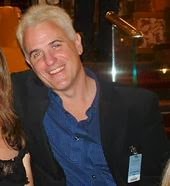"I think James Swan does a good job as far as the historical Luther goes."
"He's certainly a great resource for rooting out unfair catholic biases and myths about Luther. But I'd not remotely call him unbiased. He's polite and tries to be fair, but he's as biased against the catholic viewpoint on Luther issues as the catholic apologists he critiques.It's certainly true that each of us has "bias." The way though that I would put is that each of us has a worldview as the result of our presuppositions. It's the template we use to make sense of the world. It's my contention that Roman Catholic presuppositions that inform a Roman Catholic worldview do not make sense of the basic facts of reality.
In the end, there ARE no unbiased humans. It's part of being fallen. If you read Swan's stuff, be sure to read some catholic stuff to offset his bias. Belloc's "How the Reformation Happened" is far from 'unbiased' but still does a great job of revealing some the big picture cultural issues that made Luther and Calvin's peculiar ideas resonate when they would otherwise probably have been ignored by most of history. Belloc is at least as biased as Swan. Perhaps less polite, but about the same amount of hubris!"
This is why, for instance, when a Roman Catholic says something like, "Luther added a word to Romans 3:28 and invented sola fide" my response to this charge has been so popular. There I demonstrated that the basic historical facts as interpreted popularly by Roman Catholicism don't describe reality accurately. On another level than the basic historical facts, one comes face to face with an even deeper question: a Roman Catholic may say Luther simply was an innovator and invented sola fide to soothe his delicate conscience. But, who is the real innovator? Luther said it was Rome that had added unbiblical elements to the Christian faith. If one accepts Rome's development of doctrine, one has a ready explanation for Rome's alleged innovations. Then we're off discussing whether Rome's version of development corresponds to reality. Ultimately, it will come down to the issue of authority: a Roman Catholic begins with a presupposition that Rome is the true church (and has the power of infallibility), and a Protestant denies this. Bias? No, it's basic presuppositions and worldview at play.
Addendum 7/21/13
My reign of terror over at Catholic Answers continues:
As to the mention of Mr. Swan - he is perhaps one of the more charitable bloggers that has problems with Catholic theology. He does visit here from time to time as well. However, I would caution accepting anything he says about Luther too, based on some of what I have read of his--what comes to mind is an encounter on Luther and Purgatory he, I, CatholicDude, and some others had a while back (see posts 29 and following; my major post is 54). Swan posts as Tertum Quid. That being said, I've found some useful source material from his blog now and then anyway.
If I recall that "encounter", I was basically expected to do all the work and research in order for others to comment and critique. I stand by the bulk of my comments, particularly #68 and #69, and #74. The discussion reiterated to me a valuable lesson- that, if a fruitful historical discussion is to happen in a forum like Catholic Answers, one person should not be expected to do hours of research for everyone else.
See also my blog post here.






